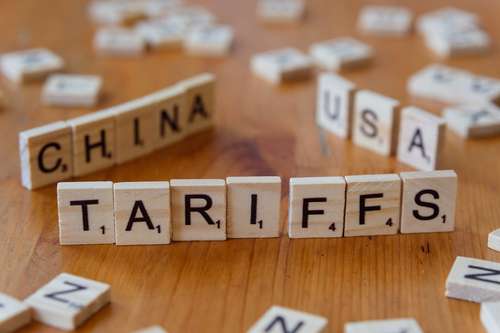KYIV, Ukraine – Guerrilla forces loyal to Kyiv are killing pro-Moscow officials, detonating bridges and trains, and assisting the Ukrainian military by identifying strategic targets as part of a growing challenge to Russia's control over the occupied areas of southeastern Ukraine.
The Kremlin's attempts to hold referendums in various cities as a step toward annexation by Russia have been threatened by the escalating resistance, which has weakened Kremlin control over those regions.
Andriy, a 32-year-old coordinator of the guerrilla movement in the southern Kherson region, stated that "our goal is to make life unbearable for the Russian occupiers and use any means to derail their plans."
Andriy, a member of the Zhovta Strichka, or "Yellow Ribbon," resistance group, spoke to The Associated Press under the condition that his full name not be published to prevent the Russians from finding him. The group is named after one of Ukraine's two national colors, and its members use ribbons in that shade to identify potential guerrilla targets.

A strategic bridge over the Dnieper River in Kherson was recently struck by Ukrainian troops using a HIMARS multiple rocket launcher, which was provided by the United States, cutting off the Russians' primary supply route. The 500,000-person city, which Russian troops captured early in the conflict, has been inundated with leaflets from the resistance, threatening the officials backed by Moscow.
They collaborate with the Special Operations Forces of the Ukrainian military, which aids in the development of their strategies and tactics. These forces also decide on targets and create a website with instructions on how to plan ambushes, organize resistance, and avoid capture. In occupied areas, a network of weapons caches and covert lairs was built.
Bombs have been detonated close to administrative structures, at the residences of officials, and even on their commutes to work.
Yevgeny Sobolev, the head of the Kherson prison, was in a car when an explosive placed on a tree detonated, but he was unharmed. Two police officers were seriously hurt when a shrapnel bomb struck their patrol car. One of the officers later passed away. After being shot over the weekend, the Nova Kakhovka local government's deputy head passed away from his injuries.
Vladimir Saldo, the head of the Russia-backed temporary government in the Kherson region, has been the target of numerous assassination attempts by guerillas who have offered a 1 million hryvnia ($25,000) bounty.

Saldo claimed on his messaging app channel that "special units from Russia detect two or three caches with weapons for terrorist activities every day." "The confiscation of weapons assists in lessening the risk of sabotage."
According to Fedorov, pro-Moscow officials are conducting security raids, issuing Russian passports, and preparing for a potential referendum on Melitopol and other occupied territories joining Russia.
"We're going to sabotage the Russian referendum. Under Russian gun barrels, we won't allow voting, he added, adding that only 10% of the population supports Moscow and that half of them have fled.
Residents of the buildings where voting will take place have been warned by guerrillas that they may be the target of bombs during voting by yellow ribbons tied to the structures.
According to Haidai, "the guerrillas have operated quite successfully." They didn't just distribute flyers. They have also destroyed infrastructure building blocks. It greatly aids in reducing the speed of Russian attacks and advances.
Observers claim that the guerrilla movement varies by region and that both sides want to overstate the size of it.
According to Vadim Karasev, the head of the Kyiv-based Institute of Global Strategies think tank, "The Russians do it to justify their repressions on the occupied territories while the Ukrainians seek to demoralize the Russian forces and extol their victories."
Although the stories about Ukrainians feeding poisoned cakes to Russian soldiers are difficult to believe, sometimes myths are more effective than facts.




